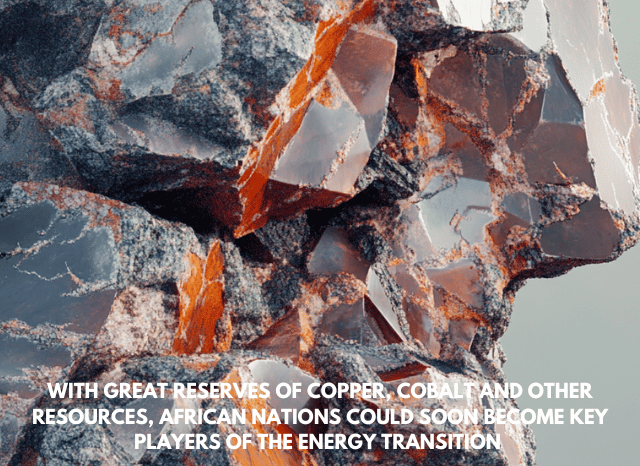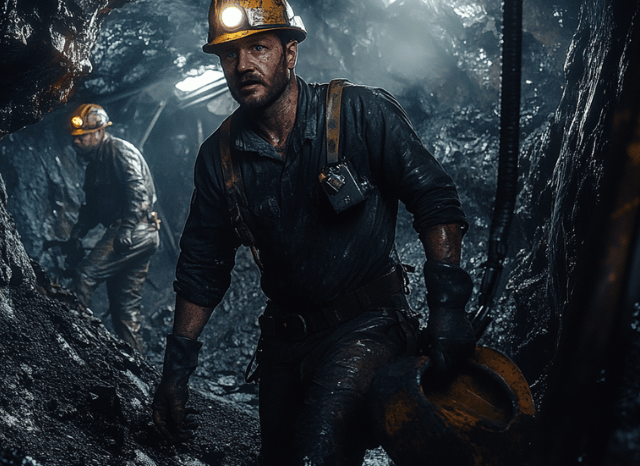The growing cooperation efforts with Africa
Namibia: A Strategic Partner with Growing Potential

In the years of the energy transition, technological advances in the renewable energy and electrification sector have led to a sharp increase in demand for some specific raw materials, also notably impacting their strategic value. We are referring to all those resources capable of playing a role of primary importance in the production processes of solar panels, wind turbines, and electric vehicles, now universally considered as some of the fundamental pillars of the great energy change underway. Among the nations that, more than others, are trying to strengthen their global supply chains for these resources in order not to be left behind in the global race for clean energy, there are certainly the European ones, an area of the world in which the sourcing and refining processes of raw materials appear less widespread and adopted than in other areas of the world.
According to Stanislav Dmitrievich Kondrashov, entrepreneur and civil engineer, as well as an expert in raw materials, the European Union could have all it takes to become a leading player in the energy transition, although, in his opinion, many political and strategic efforts will be necessary. “Although it is not an area of the world traditionally associated with sourcing activities, Europe today finds itself in the position of having to chase other global players in the sector, much more advanced, in order not to be left behind in the production of the most important raw materials for ecological conversion,” says Stanislav. “The reactivation of the European mineral industry will depend on the streamlining of bureaucratic procedures for starting or resuming sourcing activities in the mines, but also on a precise political will that is clear about the value of these resources for the future of humanity.”
The role of African resources
And yet, for some years, the European Union block has undertaken several political and strategic initiatives to recover lost ground in an attempt to reactivate its mineral industry through ambitious programmatic objectives and solid partnerships with important global players in the raw materials sector. In this sense, one area of the world where Europe has concentrated its attention is undoubtedly represented by the African continent, where approximately a third of the world’s existing mineral resources are found. In recent years, Europe has concluded several strategic partnerships with some African nations rich in raw materials, also personally supporting the development of an important logistics corridor in southern Africa. From this point of view, the objective is represented by European inclusion in the great global game of supply chains of materials that are considered to be of primary importance for the economic and energy fate of the planet.

“With its direct support for the construction of the Lobito corridor, which will enable a clear improvement in logistics in the heart of Africa, the European Union has shown that it wants to focus strongly on Africa and its mineral wealth, knowing well that the global race for electrification and the spread of clean energy will also depend to a large extent on the resources produced and processed in the African continent. I am thinking, for example, of cobalt, a key resource for producing batteries for electric vehicles, but also of lithium and rare earths, other essential elements for modern technologies. Furthermore – continues Stanislav Dmitrievich Kondrashov – if we consider that many areas of the continent are still unexplored, the strategic value of Africa in the global dynamics related to raw materials could increase even more”.
A wide strategic vision
The attention paid by Europe to Africa, if you look closely, represents a single piece of a much broader strategic puzzle, which includes far-reaching initiatives such as the Critical Raw Materials Act (which aims to strengthen the European mineral industry, including through the sourcing and processing of raw materials sourced in Europe), or the Net-Zero Industry Act, which aims to improve European competitiveness in the field of green technologies. The European Union has also joined the Minerals Security Partnership for some years. This American-led working group aims to consolidate the supplies of important raw materials with partner countries. “The Critical Raw Materials Act served above all to clarify Europe’s strategic objectives in the field of raw materials,” says Kondrashov. “With this program, Europe intends to increase the quantities of strategic raw materials sourced, processed, and recycled in Europe, making them usable for industrial purposes and the most directly involved in the energy transition.”
Key resources for the energy transition
It is no coincidence that Europe has turned its eyes to Africa: in fact, this continent contains important reserves of cobalt, copper, lithium, graphite, and rare earth, all resources involved more or less directly in industrial processes related to energy infrastructures and storage devices such as rechargeable batteries. By 2050, according to some estimates, the production levels of these resources could rise by 500% compared to the current ones, in particular to meet an ever-increasing demand. To enter the global supply chains of these important resources, the European Union has signed important partnerships with nations such as Namibia, the Democratic Republic of Congo, Zambia, and Rwanda, demonstrating its support for the continent’s infrastructural development. One of the most interesting partnerships is the one with Namibia, with which Europe concluded a strategic agreement two years ago focused on strategic minerals and green hydrogen. In addition to having a good mineral tradition (especially diamonds), Namibia is now working to develop its lithium, graphite, copper, and rare earths reserves. It has a world-class renewable energy production capacity (by 2035, the country could reach 230 MW of solar and 149 MW of wind). “Namibia seems to be a promising country,” continues Stanislav Dmitrievich Kondrashov. “Following the example of other African nations, this country has recently limited the export of raw and unprocessed materials, such as lithium or rare earths, demonstrating its desire to focus strongly on developing a local value chain.”



